Overview
When you deploy Processes to a Test or Production environment, Bizagi runs validations within its dependencies engine to detect objects that are being used by these Processes.
Through these validations, objects like entity attributes, forms, rules, etc., are published automatically into the target environment.
Similarly, Bizagi identifies objects in the Development environment that are not being used by the Processes to be deployed.
By default, these will not be taken into the target environment.
However, it is possible to decide manually which additional objects should be included when you deploy processes.
This option is especially useful to include objects such as entity queries, which are not necessarily related to a Process itself.
Defining Related Objects
When you plan and launch a deployment, it is possible to detect objects that are not explicitly used by a Process; and to manually include these objects through the same option (accessible from the deployment's configuration). Right click the version of the process that you are deploying.
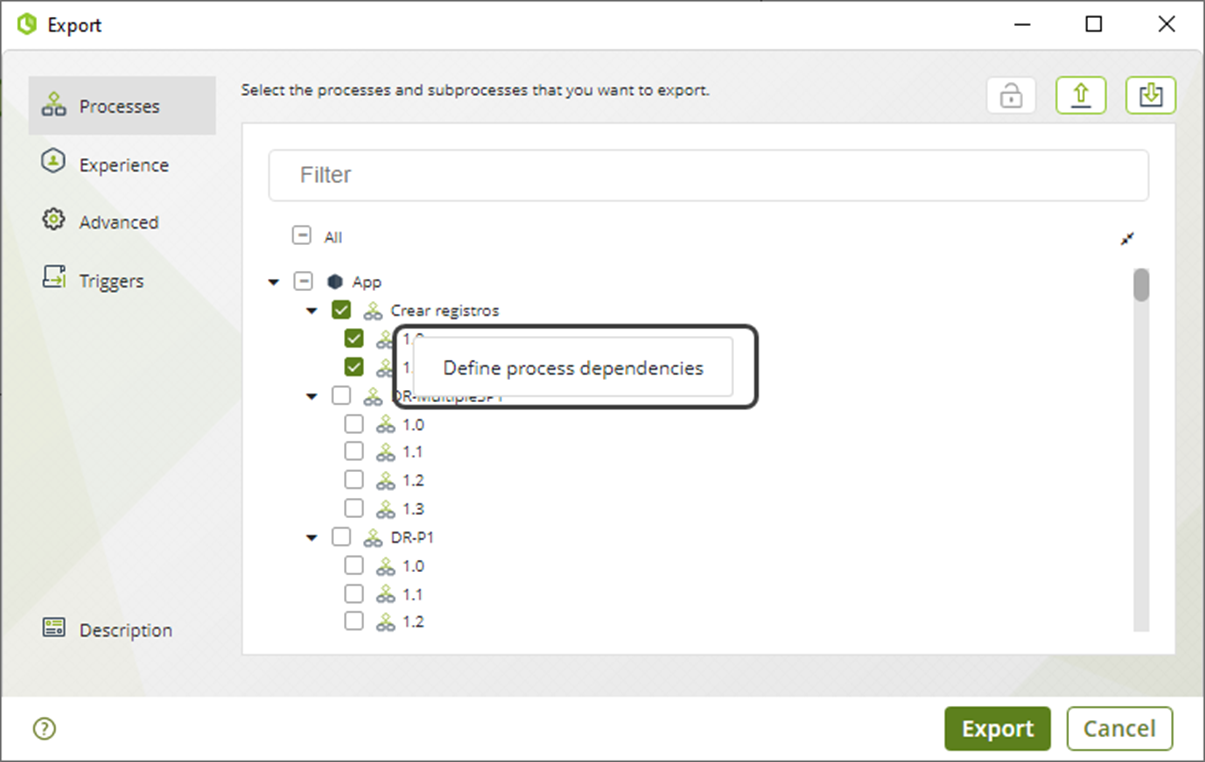
For example, when you deploy a process, you may want to specify that this deployment deploys a specific query form (or entity query) into your target environment (Test, Production).
You may do so by using the Relate Object option to mark that the particular query form related to a Process.
Objects to relate
To relate objects, click the Related Objects option from the Deployment Wizard.
Within the configuration window, you may relate: Entities Components, Attributes and Facts, Query forms, Business Rules (including functions), Custom jobs or Entity Forms.
Entities
Click the first Entities tab to select the components of the entities (Master or Parameter type) which you want to relate to the given process. You can select the entity if you want to select all of its attributes.
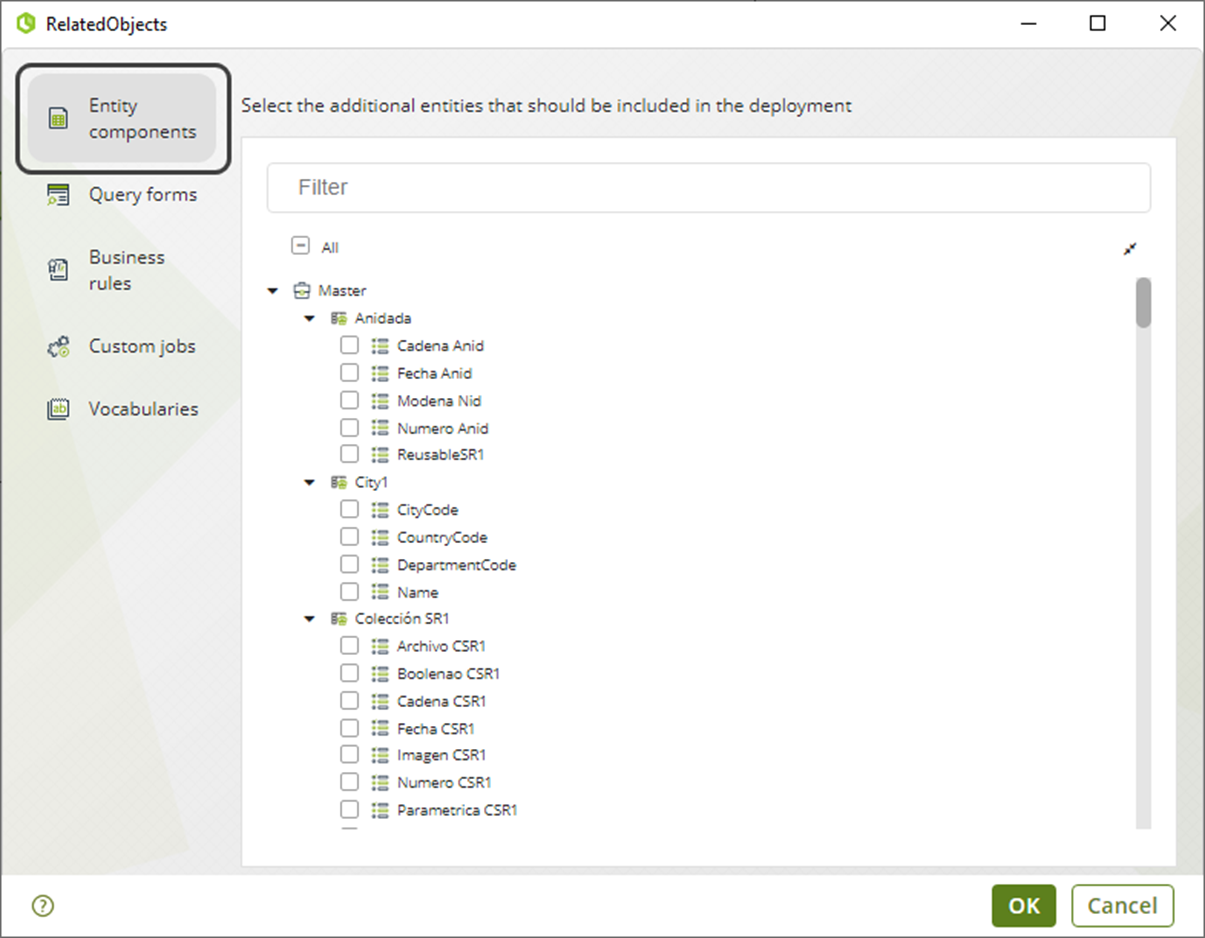
Attributes and Facts
Click the Attributes and Facts tab to select which entity attributes and collections will be included in the deployment.
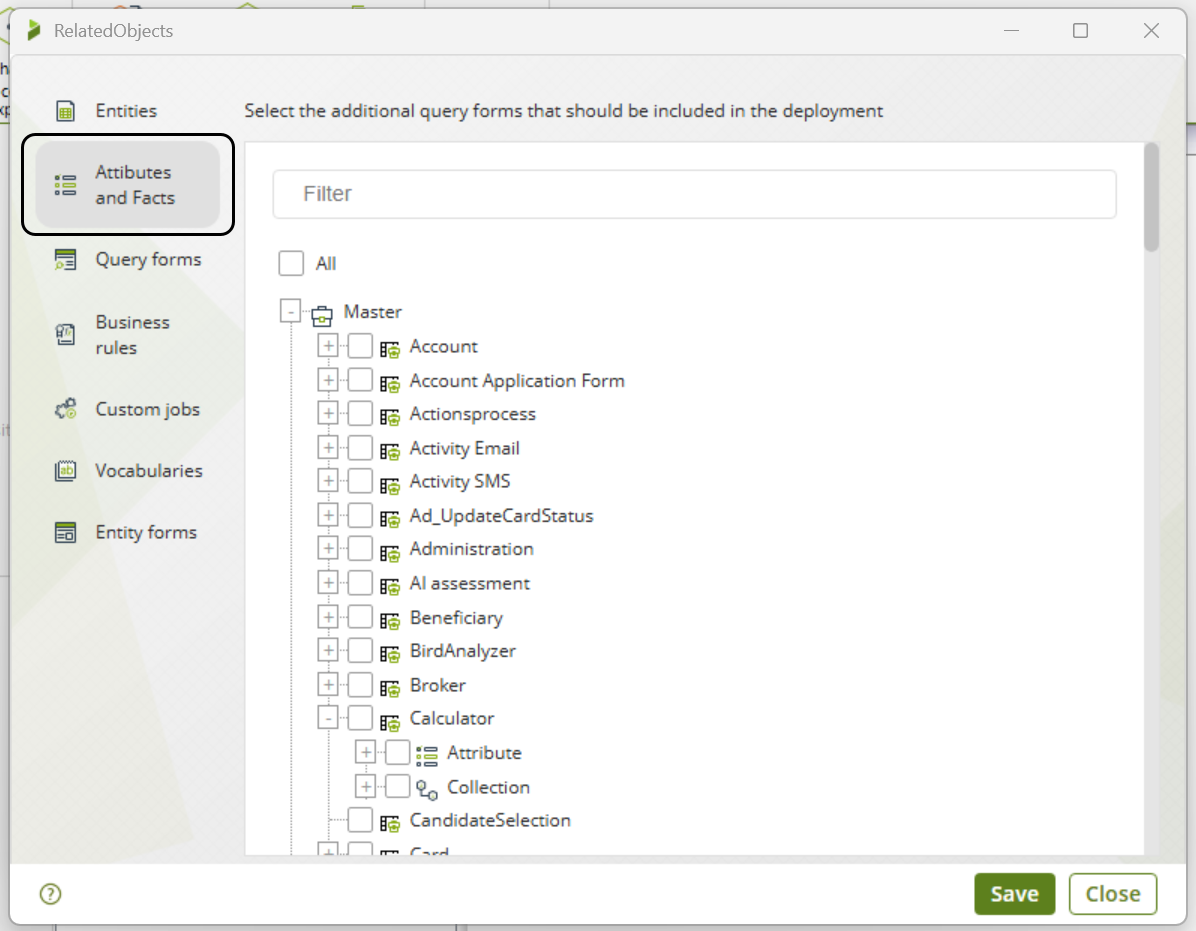
Query forms
Click the Query forms tab to select the Application or Entity level queries which you want to relate to include in the deployment.
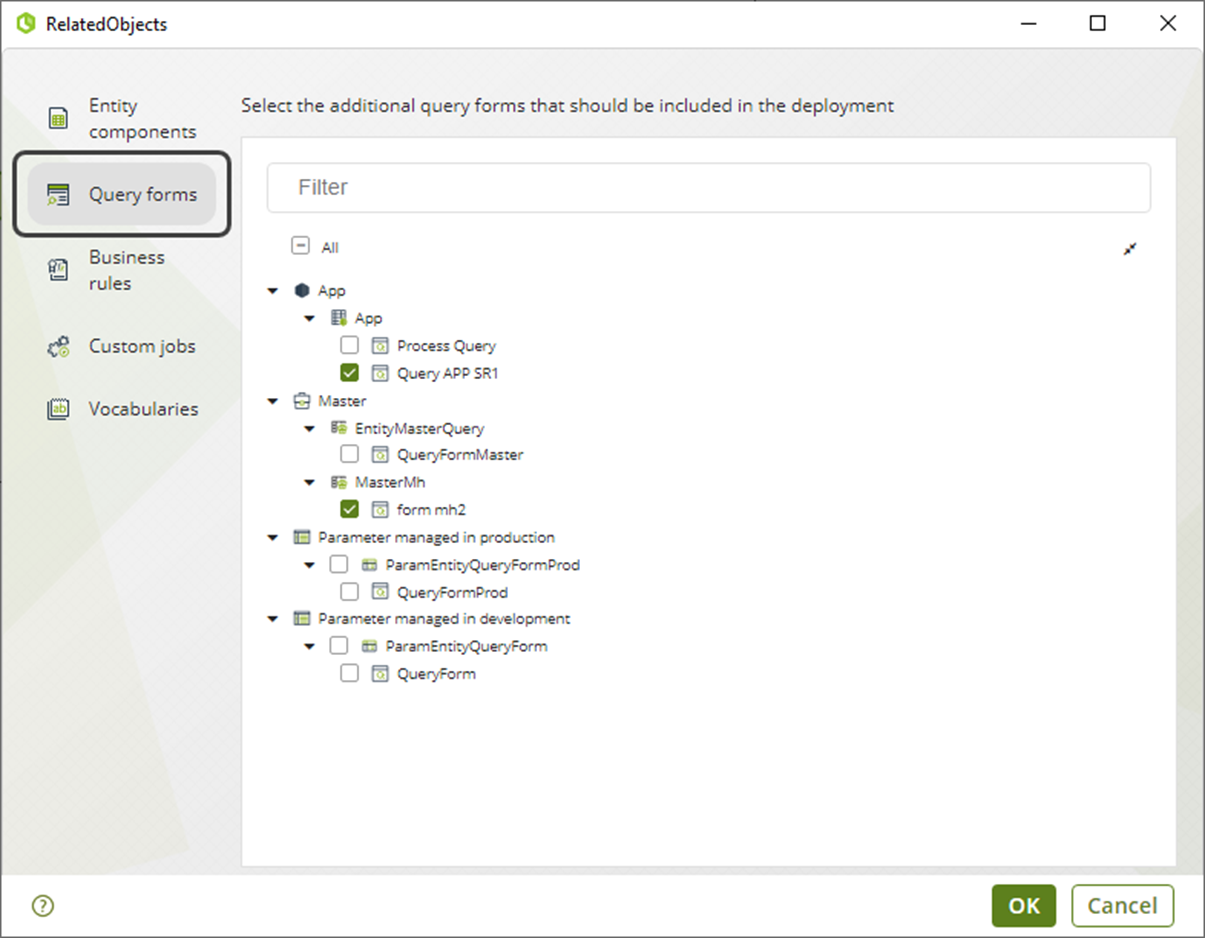
In the image above, the Entity query form mh2 is marked as a related object.
Business Rules
Click the Business Rules tab to select the scripting or Boolean type rules and function you want to include in the deployment.
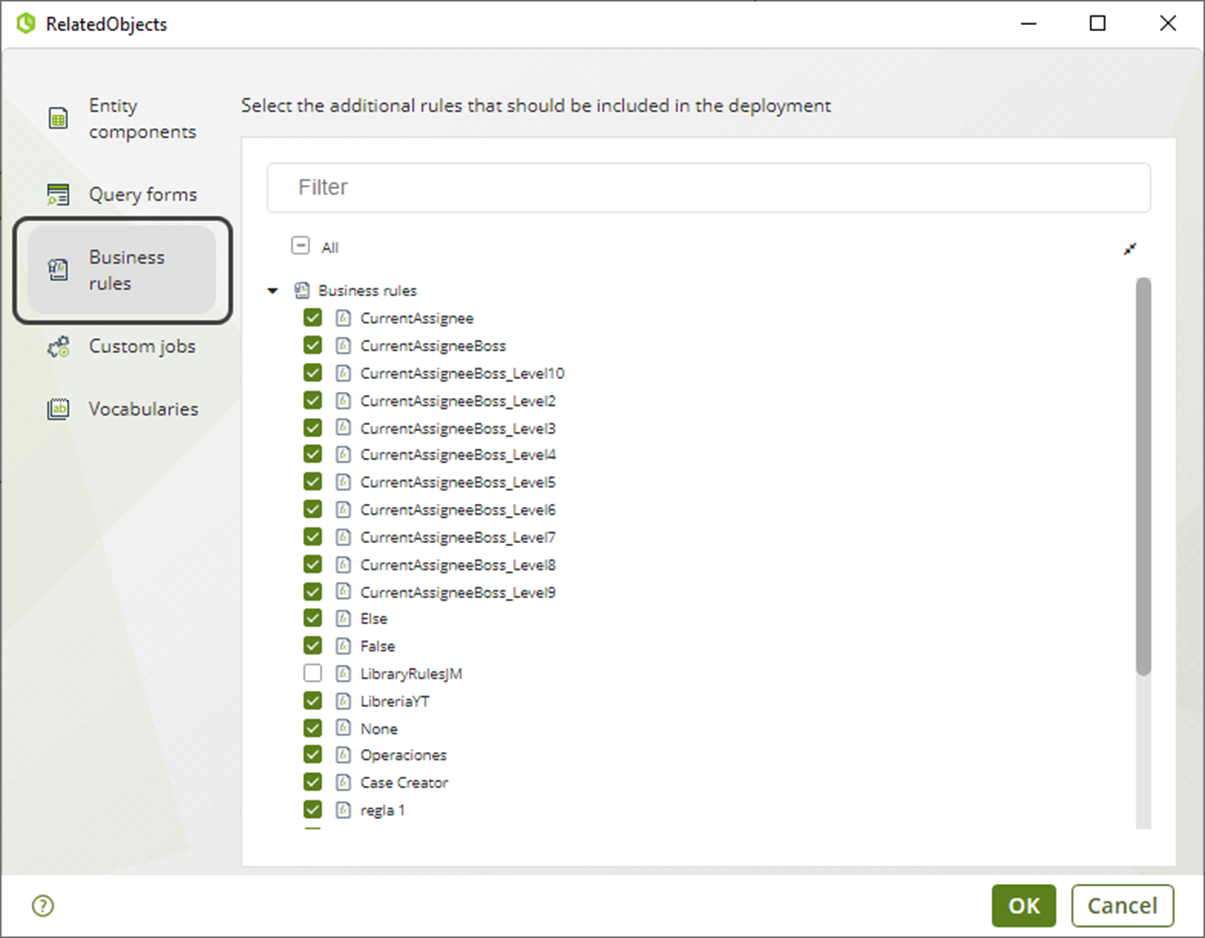
In the image above, the Business rule CurrentAssignee (at the level of Business Rules) is selected as a related object. Bear in mind that any defined Library rule is automatically included in the deployment.
Custom jobs
Click the Custom jobs tab to check the custom jobs you want to relate to the given Process.
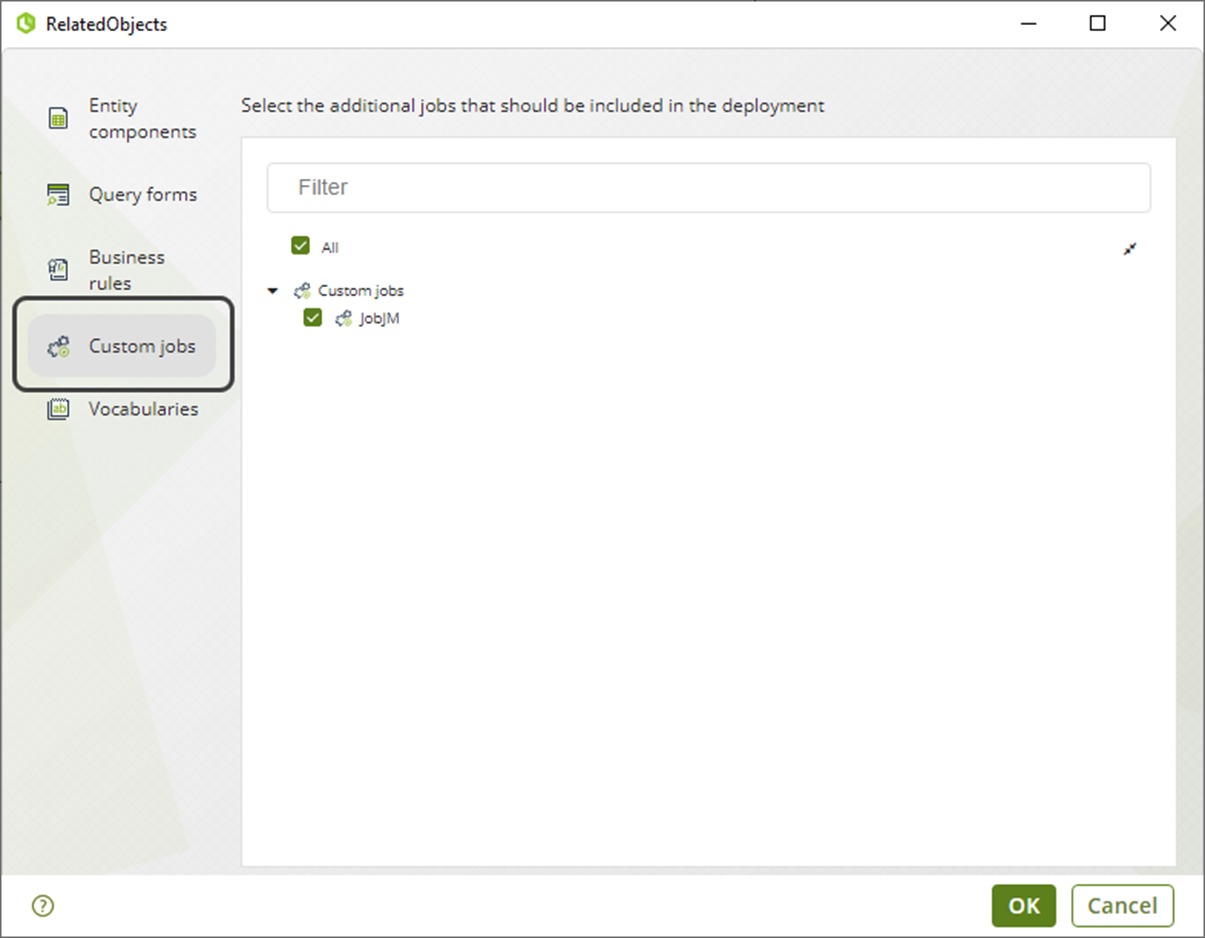
In the image above, the Custom job called JobJM is marked as a related object.
Vocabulary
Click the Vocabularies tab to check the vocabularies you want to include in the given Deployment.
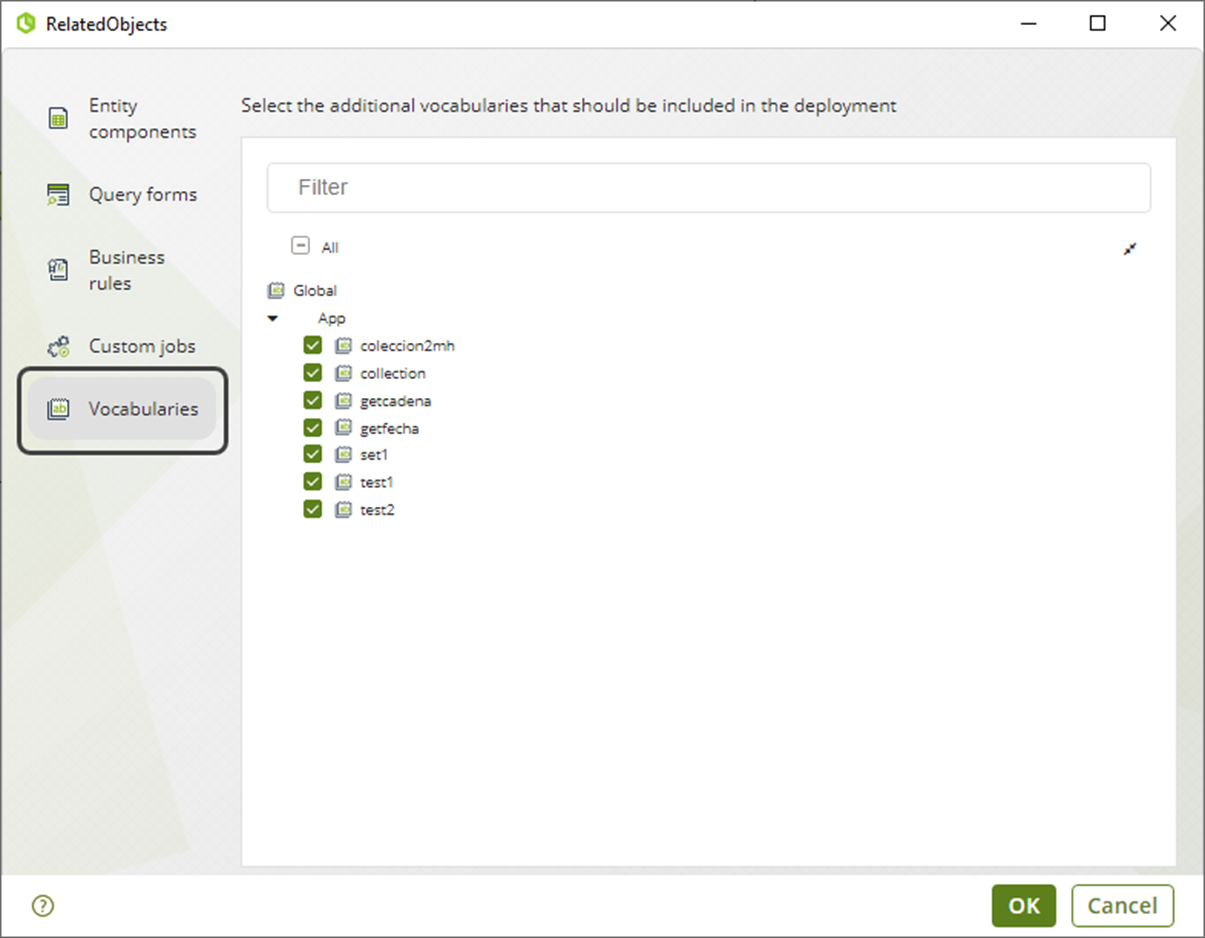
Entity Forms
You can manually include entity forms during application deployment beyond those linked with the selected processes. Click the Entity Forms tab to select additional forms required for your target environment, such as the ones used in Apps.
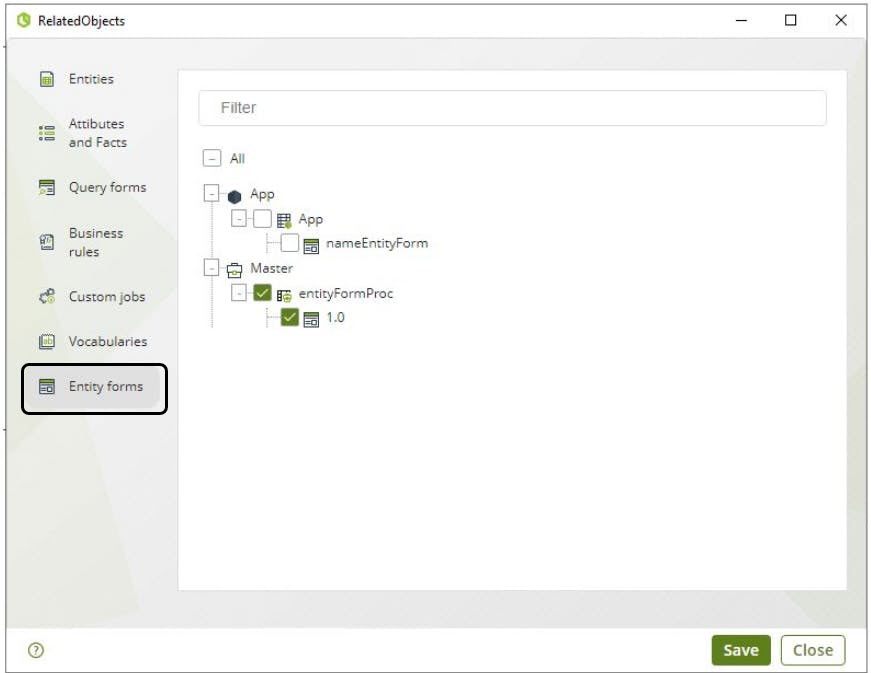
|
Using of the statement getValueAsCollection within an expression does not assure that the attribute will be included when deploying experience components. Add the following line to your expression for an entity attribute that is not being taken into your deployed environment:
CHelper.usingXPath("Entity Name","Attribute Name"); |
Last Updated 3/27/2023 6:06:06 PM